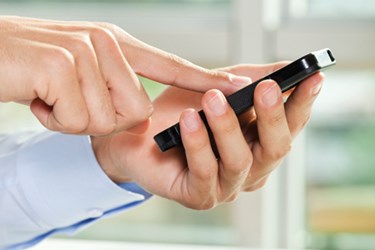Government Agencies Create Mobile Apps In Advance Of Stage 2 MU

By Katie Wike, contributing writer

Government agencies are taking a proactive role developing apps to help the public stay healthy or find help when needed
Information Week asks if 2013 will be the year of the mobile app, and it seems Uncle Sam thinks so. Health apps created by the Centers for Disease Control and Prevention (CDC) and the Department of Health & Human Services (HHS) being promoted to the public in part to help with “new patient engagement requirements that are part of the government's Meaningful Use Stage 2 program.”
Not all healthcare apps are created equal however, and many are not physician approved. The HHS, as part of its Digital Strategy, is working to promote applications that are accurate and safe to use on mobile device. Digital Strategy at HHS is an attempt to radically improve how they conduct business and communicate with the public. By putting these strategies into practice to create a modern digital strategy, HHS feels it will be prepared to meet whatever new advances the future brings - including the introduction of health apps.
There are 31 apps approved by HHS for mobile phones and tablets ranging from womens’ health to BMI calculators to memory games. One of the most used is Health Hotline which helps “the public locate health-related information. It is a directory of almost 9,000 organizations with toll-free telephone numbers.”
HHS is not alone in developing apps. The CDC created a mobile app that features articles and event notifications, as well as information on diseases and links to healthcare journals. The same agency also offers an app for patient triage that teaches injury response. Another app, developed by the Substance Abuse and Mental Health Services Administration (SAMHSA), provides information on treatment locations for mental health and substance abuse problems.
Find a Health Center App from the Health and Human Services Administration (HHSA) locates nearby health centers based on zip code, and the National Cancer Institute even sponsors an app called NCI QuitPal created to help users quit smoking. It monitors calendars, quit dates, and financial goals, as well as financial goals and alerts the user to milestones they have reached.
Most of these apps are available free of charge and, according to MobiHealthNews, could play a key role in participants meeting the Meaningful Use (MU) Stage 2 requirement of providing at least half of their patients the ability to view and download their own medical records through online portals or personal health records.
Dr. Kate Christensen, medical director of Kaiser Permanente’s Internet Services Group, told MobiHealthNews that "4 million Kaiser members have registered to use personal health records through an online portal. In 2012, patients sent 13 million secure e-mails to their doctors’ offices, viewed 33 million test results through the portal, booked 3 million appointments and requested 12 million prescription refills."
Chistiensen attributed much of that to the realease of Kaiser's first mobile app, noting "22 percent of portal traffic comes from mobile devices." Christensen went on to say "the fastest-growing groups of users are seniors and people with chronic diseases. Use of smartphones is skyrocketing among older people and I don’t really think it’s a barrier until about [age] 85.”
